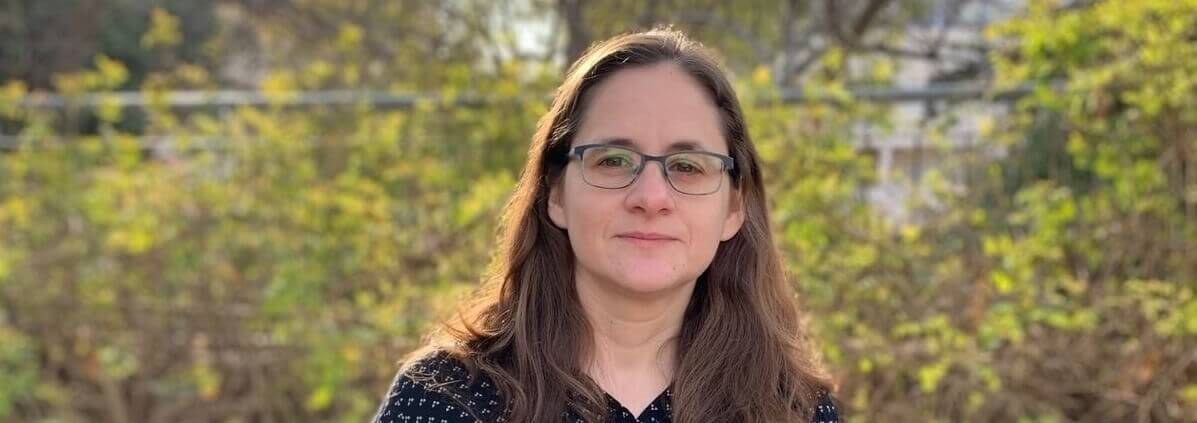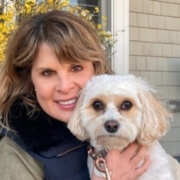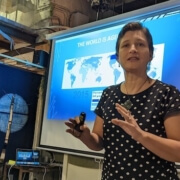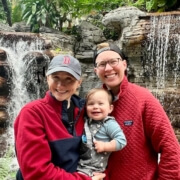Doing Something Big: Why neuroscientist Hila Zadka left academia to lead research at Assured Allies
In celebration of International Day of Women and Girls in Science, neuroscientist Hila Zadka, PhD, Clinical Research Team Lead at Assured Allies, sat down to share her journey as a woman in science; the influence of positive role modeling; and why she left academia to support Assured Allies’ mission to bring about Successful Aging.
What drew you to neuroscience?
I’ve always enjoyed asking questions. As an undergraduate majoring in biology and psychology, I didn’t have a clear career in mind. I liked asking questions, breaking them down to smaller problems, and then selecting ones that I could actually test and gain insights from. This is what drew me to science and into a PhD program.
Neuroscience, the study of the nervous system, appealed to me because it isn’t one field. It can be computer science, biology, psychology, linguistics or even philosophy. Since I was having a hard time choosing a focus, the variety appeased my inner debate. Most neuroscience research is basic science, but it’s increasingly able to apply insights to real life, and I was excited by that too.
What effect, if any, did being a woman have on your career path?
I had two of my three kids while pursuing my PhD, so being a woman definitely affected my cadence. It was a very big challenge. But my mother, who had a very successful career as Deputy Director at Israel’s Central Bureau of Statistics, was a wonderful role model. Yes, I sometimes have had imposter syndrome, lacked confidence, or was afraid to ask questions at talks. But my mother’s model affected me in a very positive way, and she’s inspired me to be a similar role model for my daughters. I want them to see me being successful as a professional, as well as a mother at home. I want them to feel free to tackle anything, to excel at science and math and all those things that in some cases girls feel less confident about.
What advice do you give younger women in science?
Ask all your questions, even if they seem dumb. When I started my PhD, I often felt too dumb or stupid to ask questions. But then someone in the audience would ask my question and the reaction was, wow that’s an excellent question! So now I tell my daughters that if they have a question, they shouldn’t hesitate to ask it, because there are at least two or three others who have the same, and you’re doing them a favor. It’s also important to hear your own voice, speak out loud, fake it till you make it. As Ruth Bader Ginsburg said, “Speak your mind even if your voice shakes.”
Why did you move from academia to private industry and Assured Allies?
It was a gradual transition. When I completed my PhD, I became an expert in a field but it was a very very narrow field shared by a handful of people in the whole world. I wanted my research to have more of an impact. So I worked as a researcher with Israel CDC on infectious disease surveillance and the bariatric surgery registry. My research was more connected, but I still felt that the difference I made was really small. Next I worked in a data science unit at a tertiary hospital here in Tel Aviv (Ichilov), where I worked with department heads and senior physicians to break down research questions, perform analysis, and publish results. One of these studies actually changed some of the hospital protocols in treating sepsis. That was really cool and very rewarding.
Still I wanted more impact. When I interviewed with Assured Allies and talked with co-founders Roee Nahir and Afik Gal about the company’s mission, I was really surprised. Wow, they want to change the trajectory of aging? They think they can actually do that? It sounded like science fiction. But I kept asking questions and gradually realized, ok, it makes sense. It’s super complicated of course; these are super complex products that we have. But I do believe that we can apply research to have a very direct effect on the quality of older adults’ lives. It’s a very innovative idea, but it’s not unattainable. It makes a lot of sense and has a business value that you can’t deny.
What’s unique about Assured Allies company culture?
It’s a very multidisciplinary company with offices in Boston and Tel Aviv, and that creates all sorts of communication challenges. Someone who enjoys these sorts of interfaces – between research, marketing, operations, data science, and product development – will really enjoy this environment. I love it.
What surprised you when you first started working here?
When I first came on board, everyone was very professional and very smart but what really surprised me is that they were also super nice. That combination is very rare. Also I hadn’t anticipated the motivation that comes from working with others on such an ambitious mission: changing the aging trajectory. We are doing something big. It creates a very good feeling.
Your job pulls you in many directions each day. How do you prioritize daily tasks?
Like many, I struggle with it. But I have some tips and tricks. One is to look at my calendar at the beginning of the week and close out any open two- or three-hour blocks of time. Of course if something urgent happens I can adjust, but scheduling chunks of uninterrupted work time really helps me get things done. Otherwise my calendar gets completely full with stuff.
My second tip is to have a paper notebook at all times. In Zoom meetings, I take down notes and then every couple days I go through them and pull out tasks so I don’t forget anything. Also I rely on the very intelligent people around me to remind me, without a fuss, that I’ve forgotten something.
What do you do for fun?
I really enjoy reading, and the Kindle app on my phone lets me read at the kids’ playground or wherever I am. I also enjoy hiking. And I sometimes take online courses. I just started one in javascript because I saw Eitan Mass [Web development Team Lead] doing cool stuff on his computer and thought oh, I want to do that too! So now I’m learning to code in javascript.

We’re Hiring! Join our team. Work with Hila!
![]()








